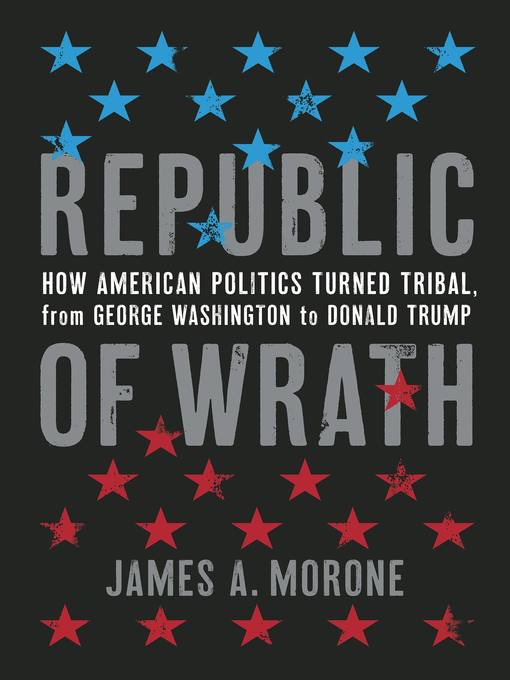
Republic of Wrath
How American Politics Turned Tribal, From George Washington to Donald Trump
کتاب های مرتبط
- اطلاعات
- نقد و بررسی
- دیدگاه کاربران
نقد و بررسی

July 1, 2020
It's us versus them--and thus it has ever been. As Brown University political scientist Morone writes, what many of us find deplorable (or, for some, commendable) in American politics is old hat: "nastiness, violence, intolerance, fraud, twisting the election rules, bashing the government, bias in the media," and so forth. Today's partisan politics may seem particularly nasty, but compared with the election of 1800, they're not so bad. Two issues stand at the dividing line: race and immigration. In the matter of voting rights, for example, "the most intense battles have always blazed around African Americans and immigrants," and even now powerful forces are afoot to disenfranchise minorities. Astonishingly, notes the author, there is no basic right to vote at the national level, that being punted back to the states, such that at a certain time in history African Americans could vote in New York but not Alabama and women in Arizona but not New York. There's a reason for the drive to disenfranchise, of course--namely, the "unprecedented configuration" by which "African Americans, immigrants, and women lean to one party, white, native males toward the other." Morone traces the evolution of that configuration across the broad expanse of American history, charting the divisions between Federalists and Democrats in the early days of the republic, Thomas Jefferson's winner-take-all solution to Electoral College votes to secure victory for himself, and like topics. He observes that with the election of Franklin Roosevelt during the Great Depression, racial and ethnic debates were quieted but did not die, as is obvious today. Morone closes this wide-ranging and readable history by venturing some suggestions on how the "tribal" breakdown of politics might be further reconfigured so that Trumpist ideas are shed for the "big tent" notions of old in the Republican Party. At a more practical level, he urges that voting rights be made automatic and easy: "Register every American when they turn eighteen. No caveats. No paperwork. No convoluted residency tests." A brilliant expos� of the uglier undercurrents of American political history.
COPYRIGHT(2020) Kirkus Reviews, ALL RIGHTS RESERVED.

July 20, 2020
Political scientist Morone (The Devils We Know) surveys more than 200 years of partisan discord in this incisive and well-researched history. Though immigration and race have been flash points since the first contested election in 1800, Morone writes, today’s disagreements over “who votes and how easily” have reached an unprecedented ferocity due to party realignment; Democrats now represent “all the so-called minorities” and their liberal supporters, while “white, native males” lean Republican. Sketching the evolution of the major parties through the 19th and 20th centuries, Monroe pinpoints Lyndon Johnson’s landslide victory over Barry Goldwater in 1964, which paved the way for landmark civil rights legislation, as the genesis of today’s “fierce tribal politics.” Resentment over minority progress broke up the coalition of Southern Democrats and Northern liberals that had been the backbone of New Deal and Great Society reforms, Monroe contends, and transformed the Republicans into the party of “small government, moral values, states’ rights, and racial backlash.” Monroe marshals a vast amount of information into a brisk, accessible narrative, and draws illuminating contrasts between past and present, spotlighting, for instance, stark differences between the politics of Democratic presidential candidates Harry Truman and Hillary Clinton. This nuanced and richly detailed account offers essential perspective ahead of the 2020 election.

























دیدگاه کاربران